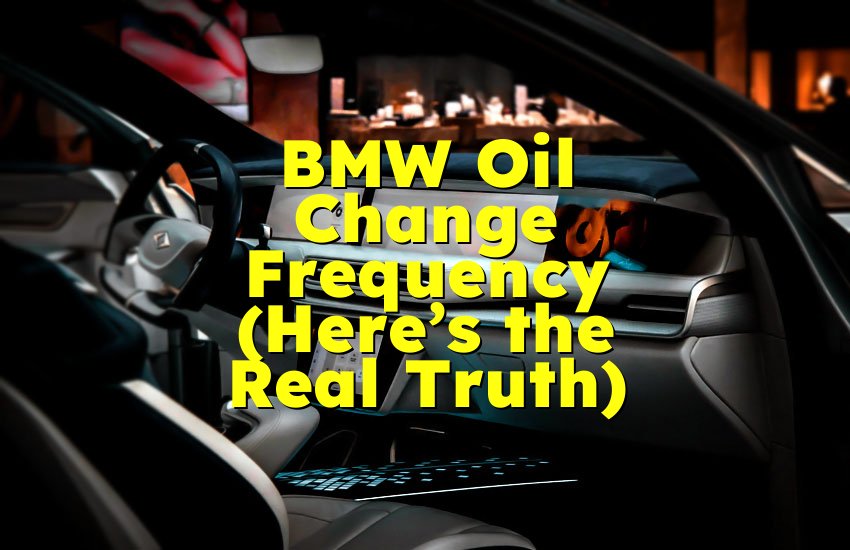As an Amazon Associate, I earn from qualifying purchases at no extra cost to you.
Car Smells Like Gas Inside : Resolve the Odor ASAP!
If your car smells like gas inside, check for fuel leaks immediately to prevent potential hazards. Gas odors can indicate a leak in the fuel system, which requires prompt attention.
When left unaddressed, these issues can pose a safety risk to you and your passengers. It is crucial to identify and fix the source of the gas smell for the well-being of everyone in the vehicle. Ignoring the problem could lead to serious consequences, so it is important to address it promptly.
We will explore the potential reasons why your car smells like gas and provide tips on how to troubleshoot and resolve this issue effectively.

Credit: www.way.com
Common Causes Of Gas Smell Inside The Car
Experiencing a gas smell inside your car can be both alarming and unpleasant. Not only can it be irritating to your senses, but it may also indicate a potential safety hazard. Understanding the common causes of a gas smell inside your car is crucial for taking appropriate action and ensuring the well-being of both yourself and your vehicle.
Leaking Fuel Lines
A common culprit behind a gas smell inside the car is leaking fuel lines. Over time, the fuel lines in your car can degrade or become damaged, causing a leak that releases the smell of gas into the interior. This can occur due to factors such as wear and tear, mechanical damage, or even corrosion.
When fuel lines leak, not only does it result in the presence of a gas odor, but it also poses a significant risk of a fire hazard. It is important to address this issue promptly to prevent any potential accidents or damage to your vehicle.
Faulty Fuel Injectors
Faulty fuel injectors can also be a common cause of a gas smell inside the car. Fuel injectors play a crucial role in atomizing and delivering fuel to the engine for combustion. When these injectors malfunction, they can cause an excessive amount of fuel to be released into the engine compartment and subsequently into the car’s interior, resulting in a strong gas odor.
Common issues with fuel injectors that can lead to a gas smell include clogs, leaks, or a failure of the injector’s seals. If you suspect that faulty fuel injectors are the cause of the gas smell in your car, it is essential to have them inspected and repaired by a qualified mechanic to ensure the proper functioning of your vehicle.
Gas Cap Issues
Believe it or not, a loose or faulty gas cap can also contribute to a gas smell inside your car. The gas cap acts as a seal, ensuring that no fuel vapors escape from the fuel tank. If the gas cap is not tightened properly or is damaged, it can result in a gas odor permeating the car’s interior.
In addition to causing an unpleasant smell, a faulty gas cap can also lead to decreased fuel efficiency and potentially trigger the check engine light. Fortunately, this issue is relatively simple to address by either tightening the gas cap securely or replacing it with a new one.
It is important to remember that a gas smell inside your car should never be ignored. Identifying and addressing the common causes such as leaking fuel lines, faulty fuel injectors, or gas cap issues, not only improves the comfort of your driving experience but also ensures your safety and the longevity of your vehicle.
Health Risks Associated With Gasoline Odor In The Car
Experiencing the strong smell of gasoline inside your car can be more than just a nuisance; it can also pose serious health risks to you and your passengers. The unmistakable odor of gasoline often indicates a potential issue with the fuel system, and prolonged exposure to this smell can have detrimental effects on respiratory health, well-being, and long-term health. In this article, we’ll delve into the health risks associated with gasoline odor in the car and how it can impact your overall health.
Respiratory Problems
The noxious fumes emitted by gasoline can easily infiltrate the cabin of your car, leading to immediate respiratory discomfort. Inhaling these fumes can irritate the respiratory tract, resulting in symptoms such as coughing, wheezing, and shortness of breath. Over time, exposure to gasoline fumes can also lead to more severe respiratory issues, such as asthma and bronchitis, especially in those with pre-existing respiratory conditions.
Headaches And Dizziness
The volatile compounds present in gasoline fumes can trigger headaches and dizziness upon inhalation. These symptoms can arise shortly after exposure to the odor, causing discomfort and potentially impairing your ability to drive safely. In addition, prolonged exposure can lead to chronic headaches and dizziness, affecting your overall well-being and quality of life.
Long-term Health Effects
Long-term exposure to gasoline odor in the car can have lasting effects on your health. Chronic exposure to these fumes has been linked to an increased risk of developing respiratory illnesses, neurological disorders, and even certain types of cancer. This underscores the importance of addressing any gas odor issues in your vehicle promptly to safeguard your long-term health.
Steps To Take Immediately
When you notice that your car smells like gas inside, it's important to take immediate action to ensure your safety and prevent any potential hazards. Follow these steps to address the issue:
Pull Over Safely
If you detect a strong gas odor inside your car, immediately pull over to a safe location away from traffic. This helps to prevent any potential accidents and provides you with the opportunity to assess the situation without endangering yourself and others.
Turn Off The Engine
Once you have safely pulled over, turn off the engine to reduce the risk of any potential fire hazards or further emissions. This step is crucial in preventing any escalation of the issue and ensuring your safety while investigating the cause of the gas smell.
Check For Visible Leaks
After turning off the engine, check around your car for any visible signs of gas leaks such as puddles or drips. It's important to visually inspect the area around your car to identify the source of the gas smell and gauge the severity of the situation.
If no visible leaks are found and the gas smell persists, it's advisable to seek professional assistance immediately to diagnose and address any potential underlying problems.
Professional Inspection And Repair Options
Experiencing a gas smell inside your car can be both unpleasant and concerning. If you’ve noticed this alarming odor lingering, it’s essential to address the issue promptly to ensure your safety on the road. In this article, we will explore the professional inspection and repair options you have when your car smells like gas inside.
Contact A Mechanic
If your car is emitting a strong gas odor from within, it is recommended that you reach out to a qualified mechanic as soon as possible. A mechanic can thoroughly examine your vehicle and accurately diagnose the problem. They possess the knowledge and expertise necessary to identify the exact source of the gas smell and advise on the most appropriate course of action.
Diagnosing The Problem
During the inspection, the mechanic will utilize various diagnostic tools and techniques to pinpoint the root cause of the gas smell. They will check components such as the fuel injectors, fuel lines, fuel tank, and exhaust system for any leaks or malfunctions. Through careful examination, they can determine whether the issue lies within the fuel delivery system, the exhaust system, or any other related systems.
Additionally, the mechanic may also perform a visual inspection underneath your car to detect any signs of gasoline leakage. They may use special dyes or equipment to trace the source of the leak accurately. By identifying the specific problem, the mechanic will be able to advise you on the necessary repairs to resolve the gas odor issue.
Repairing The Issue
Once the mechanic has discovered the cause of the gas smell, they can begin the repair process. The required repairs will depend on the underlying issue. If a component needs replacement, they will use high-quality parts to ensure optimal performance and longevity. In case of a leak, the mechanic will repair or replace the affected area to prevent any further gas odor from permeating your car.
It is important to remember that attempting to repair the issue yourself may not only be dangerous but could also exacerbate the problem. By relying on a professional mechanic, you can have peace of mind knowing that the repairs are carried out correctly and that your safety remains a top priority.
By promptly contacting a mechanic when your car smells like gas inside, you can mitigate the risks associated with any potential hazards. Ignoring the issue or delaying the repair process could lead to more significant problems and compromise your safety on the road. Trust the expertise of a professional to diagnose the problem accurately and provide the necessary repairs, allowing you to enjoy a gas odor-free driving experience.
Preventive Measures To Avoid Future Gas Smells
To avoid future gas smells inside your car, make sure to regularly inspect the fuel cap for any leaks or damage. Additionally, keep up with routine maintenance to ensure the proper functioning of the fuel system and exhaust components. Moreover, if you notice a persistent gas smell, have your vehicle inspected by a professional to identify and address the issue promptly.
Regular Maintenance ChecksRegular maintenance checks can help prevent gas smells inside your car.
Properly Sealing the Gas CapEnsure the gas cap is properly sealed after refueling your car to prevent gas odors.
Avoid Overfilling the TankAvoid overfilling the tank to prevent spills and gas smells inside the car.
Credit: www.quora.com
Dealing With Lingering Odors
Eliminate gas odors from inside your car by first checking for leaks. Ventilate the area and deep clean carpets to eliminate lingering smells effectively. Regular maintenance prevents future odors.
Cleaning The Interior
Cleaning the interior of your car is essential to get rid of gas odors. Vacuum the carpets and seats thoroughly to remove any lingering gas particles.
Using Odor Absorbers
Odor absorbers, such as activated charcoal or baking soda, can help neutralize gas smells. Place them in strategic locations in your car to absorb odors effectively.
Ventilating The Car
Ventilating the car by rolling down the windows and letting fresh air circulate can help dissipate gas odors quicker. Drive with the windows down to help aerate the vehicle.
Additionally, leaving your car in a well-ventilated area with the windows open can also help air out the interior and reduce gas smells.
Emergency Response Plan
In case you ever experience the unsettling smell of gas inside your car, it is crucial to have an emergency response plan in place. This plan will help you stay safe and take the necessary steps to prevent any potential hazards. Here are a few key elements to consider:
Having A Ventilation Mask In The Car
One essential item you should always have in your car is a ventilation mask. A mask can protect you from inhaling harmful gas fumes, ensuring your safety during such incidents. Keep a mask handy in your vehicle’s glove compartment or any easily accessible spot.
Emergency Contact Numbers
It’s important to have a list of emergency contact numbers readily available. In case of a gas leak inside your car, you need to get help immediately. Save the numbers of local authorities, emergency services, and towing companies in your phone or write them down on a piece of paper and store it in a visible place.
Evacuation Protocol
In the event of a gas leakage, knowing the proper evacuation protocol is crucial for your safety. Here’s a step-by-step guide:
- First, if you smell gas, immediately roll down the windows to let fresh air inside the car.
- Turn off the engine and any electrical devices to minimize the risk of sparks igniting the gas.
- Exit the vehicle promptly and move to a safe location away from the car and the smell of gas.
- Call the emergency services and provide them with all the necessary details, including your location and the situation.
- Avoid touching any metal surfaces or causing sparks until help arrives.
Remember, it is crucial to prioritize your safety and the safety of others around you in situations like these. By following these guidelines, you can minimize the risks associated with a gas leak inside your car.

Credit: www.way.com
Final Thoughts
Final thoughts on dealing with a car that smells like gas inside are crucial for maintaining safety and ensuring a prompt resolution. Addressing this issue responsibly and seeking professional help when necessary are key to preventing any potential hazards.
Safety First
When dealing with a gas smell in your car, safety should be your top priority. Do not ignore this issue, as it could pose a serious threat. Limit the use of the vehicle and ensure proper ventilation. Immediate action is crucial to prevent any potential risks.
Addressing The Issue Promptly
- Identify the source of the gas smell in the car
- Check for leaks in the fuel system
- Inspect the fuel lines and connections for any damage
Addressing the issue promptly can prevent any further damage or potential dangers. It is essential to take proactive steps to identify and resolve the problem as soon as possible.
Seeking Professional Help
If the gas smell persists or you are unable to locate the source of the issue, it is imperative to seek professional help. A qualified mechanic can conduct a thorough inspection and necessary repairs to ensure the safety and proper functioning of the vehicle.
Conclusion
To wrap up, a gas odor inside your car is not something to ignore. It could indicate a potential fuel leak or a malfunctioning component. Addressing the issue promptly is important for both your safety and the health of your vehicle.
Don’t hesitate to seek professional help if you’re unable to identify or fix the problem yourself. Remember, keeping your car in good condition ensures a smooth and worry-free driving experience. Stay proactive and vigilant to maintain a fresh and gas-free environment inside your vehicle.











